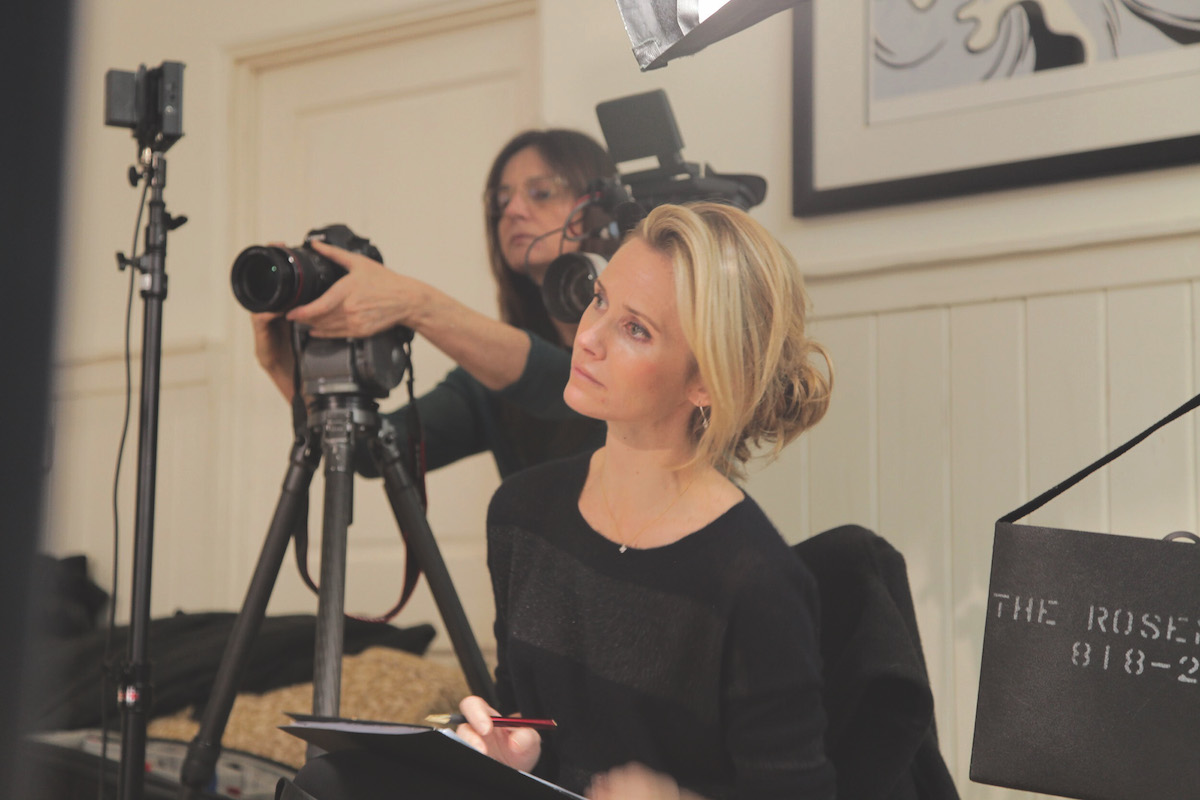Challenging What We Learn About Gender in the Media

Teenagers consume media at a startling rate, averaging over 10 hours a day via film, television, video games, social media, and the internet. This statistic underscores not only the vital importance of media literacy, but also the necessity of engaging across and with popular media in order to change a culture in which women and girls are so often valued primarily for their looks.
Jennifer Siebel Newsom’s 2011 documentary Miss Representation, a dynamic and successful interrogation of gender in popular media, addresses this very issue. The film boasts pointed interviews with celebrities and media experts and incorporates shocking-yet-familiar examples from across media that dehumanize, sexualize, infantilize, and diminish women and girls.
Playing to sold-out, standing-room-only audiences at the Sundance Film Festival, Miss Representation was then more widely distributed by the Oprah Winfrey Network and has been seen by millions of viewers. The film resonated “so strongly with women and girls everywhere,” says Siebel Newsom, “that there was exuberant demand for education and action beyond viewing the film.” Thus, The Representation Project (TRP), an organization that seeks to awaken “consciousness around the media’s harmful and demeaning portrayal of gender stereotypes and norms using film, education, and activism,” was born.
Shifting the Culture around Gender Stereotypes
The rapidly shifting media landscape means that TRP utilizes multifaceted campaigns, all spanning from its core work around gender and its intersections with race, class, sexuality, body size, age, and ability.
To advance TRP’s mission, Siebel Newsom and her team have produced three additional incisive documentaries: The Mask You Live In, about the challenges of masculine stereotypes; Fair Play, about domestic inequity; and The Great American Lie, about economic inequality. TRP also serves as a vital resource for research on media representation and its effects. It also manages a responsive series of hashtag campaigns that call attention to the most pressing issues facing women and girls in contemporary culture and that have received almost two billion impressions. Additionally, TRP’s educational programs, (among them, Youth Media Lab, Next Gen Filmmaker Academy, Gender Equity Training program), have served over two million youth so far.
Working with and Elevating Others
As a “cultural shift” organization, TRP has long-term goals that seek systemic change. Its work remains, in Siebel Newsom’s words, “partner-oriented,” making TRP’s objective collaborative.
“We’re pulling people together in the space,” says Caroline Heldman, executive director. This effort includes aggregating research on gender in the media, as well as working with other nonprofits on campaigns and action. Tackling the complexities of the ways gender stereotypes in media impact us all is a full-time job and then some, but it’s one with both immediate results and long-term benefits.
TRP’s campaign around sexism in Super Bowl ads led to a marked decrease in those kinds of ads in subsequent years. “When it comes to society’s limited perception of gender and intersectionality, progress comes from changing the hearts and minds of one individual, one community, and one industry at a time,” says Siebel Newsom. “And, when that happens, attitudes and behaviors shift, and cultural transformation is possible.”
The Representation Project
Donate now!therepproject.org
(415) 233-4060
CFO/COO: Debra Garber
Mission
Using film and media as catalysts for cultural transformation, The Representation Project inspires individuals and communities to challenge limiting gender stereotypes and shift norms.
Begin to Build a Relationship
We know you care about where your money goes and how it is used. Connect with this organization’s leadership in order to begin to build this important relationship. Your email will be sent directly to this organization’s director of development and/or Executive Director.